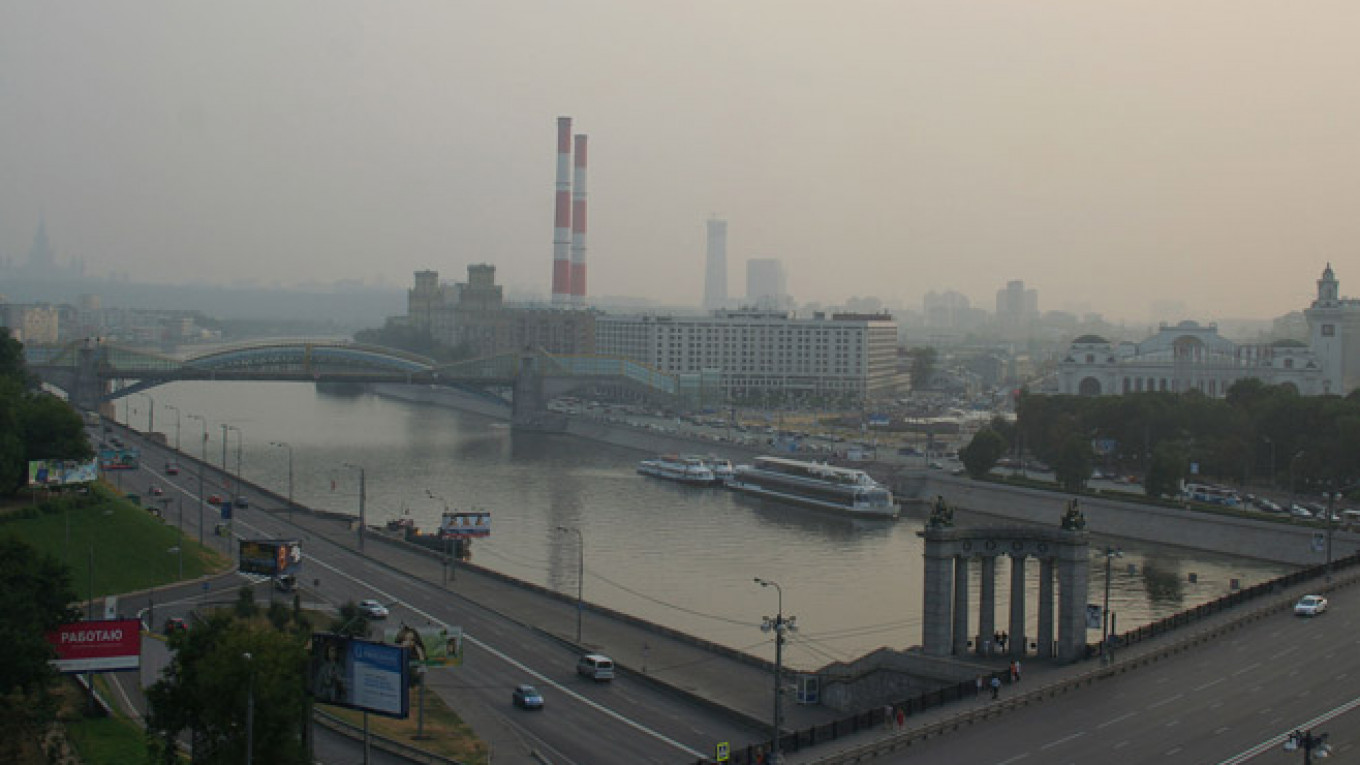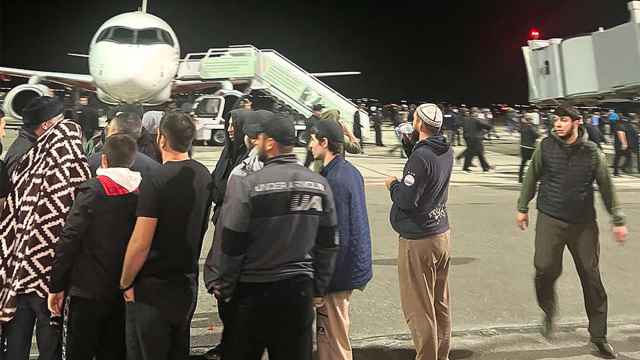Russian monks and nuns have been enlisted to form firefighting brigades in order to prevent a repetition of the devastation wreaked by wildfires in 2010.
Nuns in the Diveyev convent in the Nizhny Novgorod region east of Moscow and monks in the northern Solovetsky monastery on the White Sea will help professional firefighters to prevent the blazes that have plagued Russia in recent years, Interfax reported.
"Both on the Solovetsky islands and in Diveyevo, the monasteries essentially act as the main social and public enterprises, so it is absolutely natural for them to help out firefighting brigades," Archpriest Vsevolod Chaplin, spokesman for the Russian Orthodox Church's Moscow Patriarchate, told The Moscow Times on Tuesday.
"This is also their historical role: When, hundreds of years ago, there were no professional fire brigades, monks would tackle the fires," Chaplin said.
A representative of the state weather forecaster Roshydromet told The Moscow Times on Tuesday that the threat of smog engulfing Moscow was "diminishing."
"The heat wave will subside by the middle of August, but we also expect to have enough rain before then in the coming days to prevent peat fires from spreading around Moscow," said Yury Varakin, head of Roshydromet's emergency situations center.
"We can also see that winds are blowing from the east, so smog from the wildfires in the Tver region to the north is blowing away from us in Moscow," he said.
Alexei Yaroshenko, head of forest campaigns at Greenpeace Russia, said that while it is unlikely that the city will experience the same unprecedented level of smog that it saw in 2010, when smoldering peat bogs around the city blanketed the capital with dense, stifling smoke, smog could still reach Moscow.
Wildfires in 2010 caused major damage to Russia, devastating crops and leading to an estimated 56,000 people dying from the effects of the smog.
"Forecasts beyond a time frame of two or three days are quite unreliable, so if the wind changes, then the plume of smoke that has accumulated in the north will suddenly turn toward Moscow, which will envelop the whole city with smoke, though its volume will be smaller than in 2010," Yaroshenko told The Moscow Times.
Prime Minister Dmitry Medvedev on Monday ordered government officials to remember the lessons learned from 2010.
"The situation in central Russia requires particular attention, especially in the Tver region, where there are not only forest fires, but peat fires too, and we know what threat that brings with it," Medvedev said at a meeting with deputy prime ministers Monday.
"The smell has not yet reached here, but we can expect that it may appear soon," he said, urging the Emergency Situations Ministry to do everything it could to control the situation.
Russia's Federal Forestry Agency in turn warned that most fires are due to human activities, such as outdoor picnics with campfires, a popular summer activity among Russians.
"All fires are caused by humans: a campfire that was not put out, a match, a cigarette, or charcoal that was left on the ground," the head of the forestry agency's branch in the Central Federal District told Interfax on Tuesday.
See also:
Car Fumes and Wind Cause Heavy Smog in Moscow
Contact the author at i.nechepurenko@imedia.ru
A Message from The Moscow Times:
Dear readers,
We are facing unprecedented challenges. Russia's Prosecutor General's Office has designated The Moscow Times as an "undesirable" organization, criminalizing our work and putting our staff at risk of prosecution. This follows our earlier unjust labeling as a "foreign agent."
These actions are direct attempts to silence independent journalism in Russia. The authorities claim our work "discredits the decisions of the Russian leadership." We see things differently: we strive to provide accurate, unbiased reporting on Russia.
We, the journalists of The Moscow Times, refuse to be silenced. But to continue our work, we need your help.
Your support, no matter how small, makes a world of difference. If you can, please support us monthly starting from just $2. It's quick to set up, and every contribution makes a significant impact.
By supporting The Moscow Times, you're defending open, independent journalism in the face of repression. Thank you for standing with us.
Remind me later.






